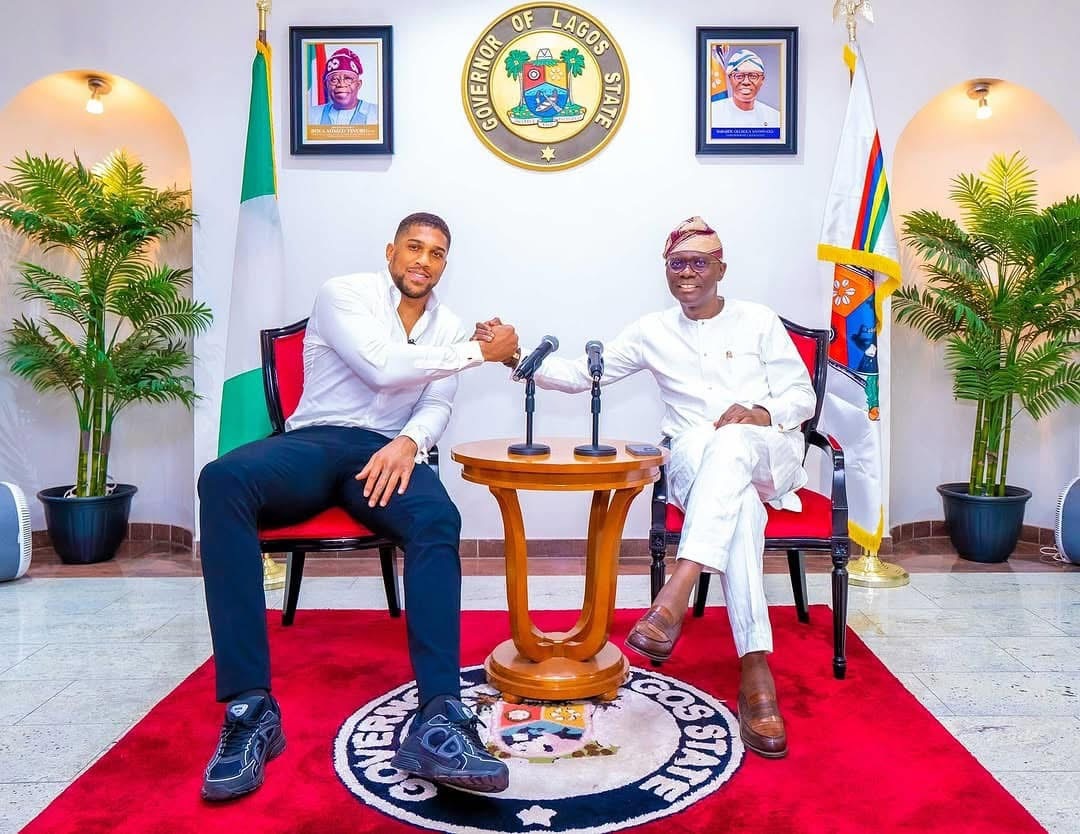• Law serves as conscience of the nation, says Gov Mbah
• NBA president calls for tough decisions to secure Nigeria’s future
South Africa’s firebrand opposition leader and President of the Economic Freedom Fighters (EFF), Julius Malema, has said Africa’s future is dependent on political, economic decisions in Nigeria and South Africa. He, therefore, called for deeper economic collaboration between Nigeria and South Africa on the unity and industrialisation of its two biggest economies.
He also cautioned the African continent against loans from the Bretton Woods institutions and others, warning that such moves can undermine Africa.
According to the outspoken South African, such loans, which he described as “a debt trap”, can mortgage the future of the continent
“The debt trap of Africa to our foreign colonisers must be stopped and that begins by regulating these loans that our leaders commit future generations to because they will not be there when the colonisers come to collect it,” he said
The EFF leader also restated his party’s radical vision of a borderless Africa with one currency, one parliament, and one military command. He urged Africans to reclaim their land, resources, and destiny from imperialist control.
Delivering the keynote address at the 2025 Nigerian Bar Association (NBA) Annual General Conference in Enugu, theme: “Stand out, Stand tall”, Malema paid glowing tribute to Nigeria’s historic role in South Africa’s liberation struggle, while challenging African nations to break free from the shackles of colonial economic dependency.
“Nigeria is not just another African country to us. It is a comrade nation that stood firmly by our side during our darkest hour when South Africa was shackled by apartheid. Nigerians sacrificed their salaries, students paid the Mandela tax, and successive governments took bold stands, including boycotting the 1976 Olympics and 1979 Commonwealth Games. We cannot forget those who stood with us when it mattered most.”
He recalled that Nelson Mandela, shortly after his release from prison in 1990, made one of his first international visits to Lagos and Abuja to personally thank the Nigerian people. According to Malema, that bond of solidarity, forged in sacrifice, must not remain a relic of history but should be transformed into concrete economic collaboration today.
Malema lamented that despite their enormous resources, both Nigeria and South Africa remain trapped in colonial economic arrangements where raw materials are exported cheaply to Europe, America and Asia, only to be sold back to Africans at “crazy prices” as finished goods.
“The path forward is clear: Nigeria and South Africa must industrialise together, build factories together and process our resources on African soil. Imagine a joint programme where South African mining expertise is combined with Nigerian oil wealth to create African-owned energy and resource conglomerates. Imagine Nigeria feeding the continent while South African technology drives logistics and machinery. That is the Africa we must build.”
He pointed to existing economic linkages, with South African companies such as MTN, Shoprite, and Multichoice already thriving in Nigeria, while Nigerian music, film, and literature have deeply influenced South African culture. But he warned that these gains are often overshadowed by the scourge of xenophobia.
Malema condemned xenophobic attacks in South Africa as a betrayal of African unity, describing them as “a sickness born of poverty, inequality and government failure.
“Let me be unequivocal: xenophobia is anti-African unity. We must educate our people that unity, not division, is the solution to the African crisis. A Nigerian in Johannesburg or a Ghanaian in Cape Town is not a foreigner but an African contributing to Africa’s progress. In the same way, South African entrepreneurs must be welcomed in Lagos as partners in a shared future.”
He called for freer movement across the continent, including visa-free travel between Nigeria and South Africa, harmonized trade policies, and continental infrastructure that binds African economies into one integrated market.
Malema also placed Nigeria and South Africa’s partnership within a broader Pan-African and global context. He reiterated the EFF’s solidarity with oppressed peoples globally, including in Western Sahara, Palestine, Cuba, Haiti, and the Democratic Republic of Congo.
“The struggle of South Africa against apartheid taught us that the suffering of one oppressed people is the suffering of all oppressed people everywhere.
“Our liberation as Africans will remain incomplete if we turn a blind eye to the struggles of those who continue to suffer under occupation, colonialism, imperialism and economic exploitation.”
He criticised what he called the hypocrisy of international justice, which moves swiftly against leaders in the Global South but drags its feet when crimes are committed by Western powers or their allies. Citing South Africa’s case at the International Court of Justice, accusing Israel of genocide in Gaza, he insisted that Africa must build its own legal institutions to guarantee justice.
“If the so-called international community is unwilling to deliver justice in real time, then Africa must advance its own courts, its own tribunals, its own instruments of solidarity,” Malema declared.
The EFF leader, therefore, restated his party’s radical vision of a borderless Africa with one currency, one parliament, and one military command. He urged Africans to reclaim their land, resources, and destiny from imperialist control.
“We are not a dark continent. How can we be dark when we have diamonds that shine among us?” he asked, drawing loud applause from the lawyers and dignitaries at the conference.
“Together, Nigeria and South Africa can lead Africa into a future where we are not beggars but giants, not divided tribes but one people. Our salvation will not come from Washington or Brussels; it lies here, in Lagos and Johannesburg, in Abuja and Pretoria, in the hands of Africans who refuse to be divided
Law serves as conscience of the nation, says Gov Mbah
GOVERNOR of Enugu State, Dr. Peter Mbah, while declaring the event open, reminded lawyers that the law is more than a profession, as it serves as the nation’s conscience.
“Let me say this: the theme of this year’s conference, ‘Stand Out, Stand Tall,’ is a timely reminder of the responsibility we bear as lawyers and leaders. The law is not just a profession – it is the conscience of the nation. We are not only courtroom advocates; we are also defenders of truth, architects of peace, and champions of equity,” he said.
Listing some concrete steps by his administration towards justice sector reform, the governor said, “Since assuming office, we have made justice sector reform a cornerstone of our governance. Just a few examples will suffice.
“We were among the first states to fully implement financial autonomy for the judiciary in line with Section 121(3) of the 1999 Constitution (as amended). This has enhanced the efficiency, independence, and dignity of our courts.
“We have carried out a comprehensive rehabilitation and digitisation of our courtrooms across the three senatorial zones. The High Court Complex in Enugu is equipped with e-filing, virtual hearing facilities, and an integrated case management system.
“To decongest our courts and promote alternative dispute resolution, we have strengthened and expanded the Enugu Multi-Door Courthouse, making it a model in the region for commercial and family dispute settlement.
“Through partnership with civil society and the NBA, we have expanded access to pro bono legal services for indigent citizens and detainees, especially in our rural areas. No one should be too poor to afford justice.
“We have also carried out an extensive codification and review of obsolete state laws to reflect modern realities, ensure gender justice, and promote the ease of doing business in Enugu.
“Perhaps one of the reforms I am proudest of – we introduced real-time transcription for our courts. Attaining Verbatim Reporting for the courts has eliminated the strain of longhand recording on judges, cut down on delays and improved productivity,” he said
The opening ceremony was chaired by the Sultan of Sokoto, His Eminence, Dr. Sa’ad Abubakar III.
NBA calls for tough decisions to secure Nigeria’s future
MEANWHILE, the President of the Nigerian Bar Association (NBA), Mazi Afam Osigwe (SAN), has urged Nigerians, especially members of the legal profession, to embrace resilience, integrity, and tough decision-making to reposition the country for economic growth and national progress.
Speaking at the opening ceremony of the conference, Osigwe drew inspiration from the city’s historical legacy as the hub of Nigeria’s coal industry and the site of the 1949 Enugu Colliery Massacre, also known as the Eva Valley shooting.
He recalled how unarmed miners protesting wage arrears were gunned down on November 18, 1949, by British colonial authorities. That tragic event, he noted, became a turning point in Nigeria’s independence struggle, showing the power of collective resilience against oppression.
“The theme of this conference is not just a slogan. It is a charge to be visible not for show, but for service; not for selfish interest, but for excellence, resilience, and integrity,” Osigwe said.
“To stand tall is to hold on to dignity even when difficult decisions must be made in the best interest of the legal profession and the nation.” He stressed that leadership in Nigeria must go beyond populism, requiring vision, competence, and courage to take decisions that may be painful in the short term but transformative in the long run.
“No economy ever stood tall on imported effort or mere consumerism,” Osigwe declared. “Nigeria must make serious choices to achieve sustainable growth—choices that include fighting corruption, reforming regulations, investing in infrastructure, and embracing technological innovation.”
The NBA president said the association must also play its part by reforming legal education, expanding access to justice, and leveraging digital technology. These reforms, he acknowledged, may trigger internal resistance and difficult debates but are necessary if the legal profession is to serve as a catalyst for national development.
Osigwe also welcomed Julius Malema, leader of South Africa’s Economic Freedom Fighters, as the conference’s keynote speaker. He described Malema as a fearless advocate of economic emancipation and social justice whose message resonates with Africa’s urgent need for systemic change.
“The legal profession does not exist in a vacuum. We are part of a broader African movement for economic sovereignty, justice, and true independence.”
He expressed gratitude to Enugu State Governor Peter Mbah for supporting the conference, as well as other dignitaries in attendance, while calling on participants to seize the platform to reflect and act boldly in addressing Nigeria’s pressing challenges.
“Like the Enugu coal miners of 1949, we must be ready to make sacrifices today for the prosperity of tomorrow,” Osigwe concluded. “If we stand out and stand tall, the NBA can help unlock Nigeria’s potential and inspire our people to rise above mediocrity.”






